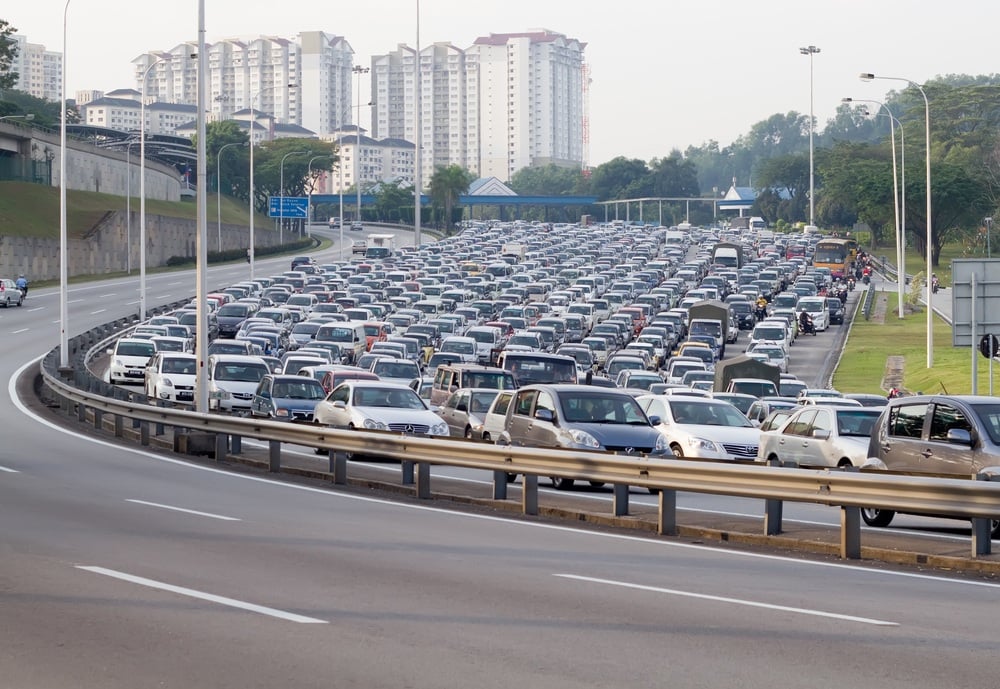July 1st is the first day in the new fiscal year for many states, so some of the new laws just took effect on that date. And while they may be termed “fines” or “penalties,” don’t mistake them for anything but new ways for governments to raise revenue without actually being seen to “increase taxes.”
Anti-Slow Poke Fine
Florida has enacted the one fine that we all wish was in effect on every highway that we drive: the slow-poke fine. If you’re caught ambling along at 10 miles below the posted speed limit in the far left (aka passing) lane, you can be fined $60 as part of a brand-new “road rage” law. This slow-poke ticket would also hit your driver’s license the same as would a speeding ticket, meaning it can increase your insurance rates. So if you tend to view the speed limit as something to be avoided, stay out of the “fast” lane or face the music.
Anti-Bullying Fine
In tiny Monona, WI, the citizens have a zero tolerance for bullying. In this town, population 7500, bullying can range from schoolyard skirmishes to neighborhood disputes, and includes cyber-bullying as well as physical harassment. The penalty ranges from $114 for a first offense to $177 for a second, and parents can be penalized for their children’s actions once a warning has been issued.
Anti-Smoking Taxes
Minnesota has just increased its tax per package of cigarettes from $1.23 to $2.83, making it the 6th highest tax in the country. New York state still reigns at the top of the list, though, with a tax of $4.85 per pack. Of course, all these high cigarette taxes tend to encourage inter-state smuggling, which is another issue entirely. The idea behind the high cigarette taxes, besides raising revenues, is that at some point a consumer will decide that the cost is too high, and will hopefully quit smoking.
Higher Taxes for Summer Drivers
Eight states have higher gasoline taxes going into effect just in time for summer vacations. Since gas taxes tend to be channeled into road and bridge repairs, this measure is meant to align the cost with the drivers with the highest use. Wyoming raised its tax by ten cents per gallon, followed by Connecticut (4 cents), Maryland (4 cents), California (3.5 cents), North Carolina (2.5 cents), Georgia (2.5 cents), and Kentucky (2.4 cents). Two states, Virginia and Vermont, did actually choose to lower their gas taxes. Three states (Washington, Oregon and Texas) are evaluating some sort of VMT (Vehicle Miles Traveled) tax on electric vehicles, in order to assess owners of those vehicles for their use of the states roads and bridges. Since those vehicles don’t purchase gas and therefore don’t pay gas taxes (either state or federal), they are not paying a share of the upkeep and repair expenses. Virginia has addressed this issue already with a green-vehicle fee that is charged in addition to the normal registration fee on a vehicle. Owners of hybrid and pure-electric vehicles pay an annual $64 charge, under the assumption that they do not pay as much in gasoline taxes as drivers of conventional vehicles.
Other Unusual Taxes
If you buy a bagel in New York City, you have to pay a tax if you want the vendor to slice it, toast it or spread cream cheese on it for you. 8%, as a matter of fact, illustrating the difference between a bagel purchased for home consumption (tax exempt) and a bagel for on-site consumption (8% tax). In Utah, businesses that hire nude or partially nude employees pay a 10% tax on services sold. Targeted at erotic dance clubs and escort services, the revenues go for treatment for sex offenders and investigation of internet crimes against children. And Maryland charges all homeowners and businesses a $2.50 per month sewage tax, which is also known as the “flush tax.” So the next time you’re faced with a tax that you think is unfair or ridiculous, think about some of the taxes in other states. You could be paying a blueberry tax, if you live in Maine, or a tax on fruit from vending machines if you live in California.



